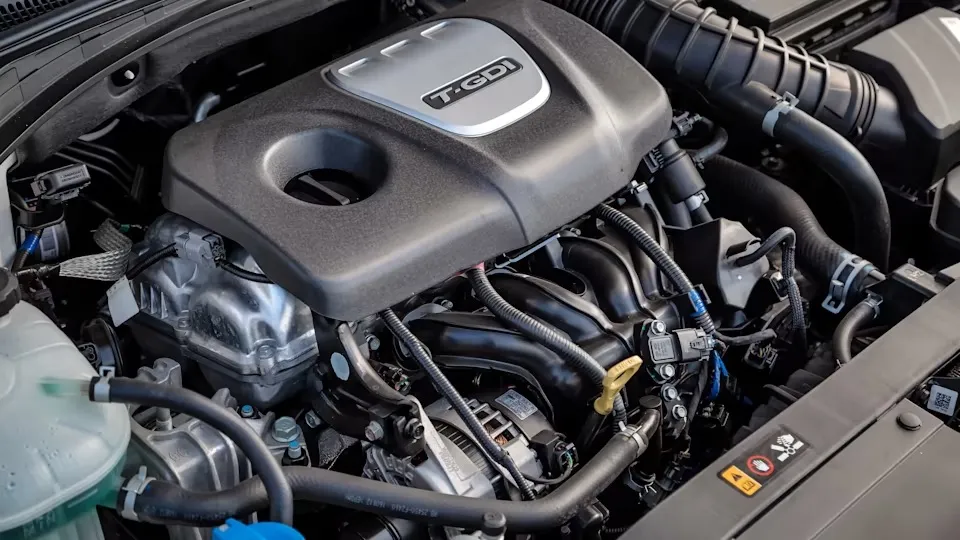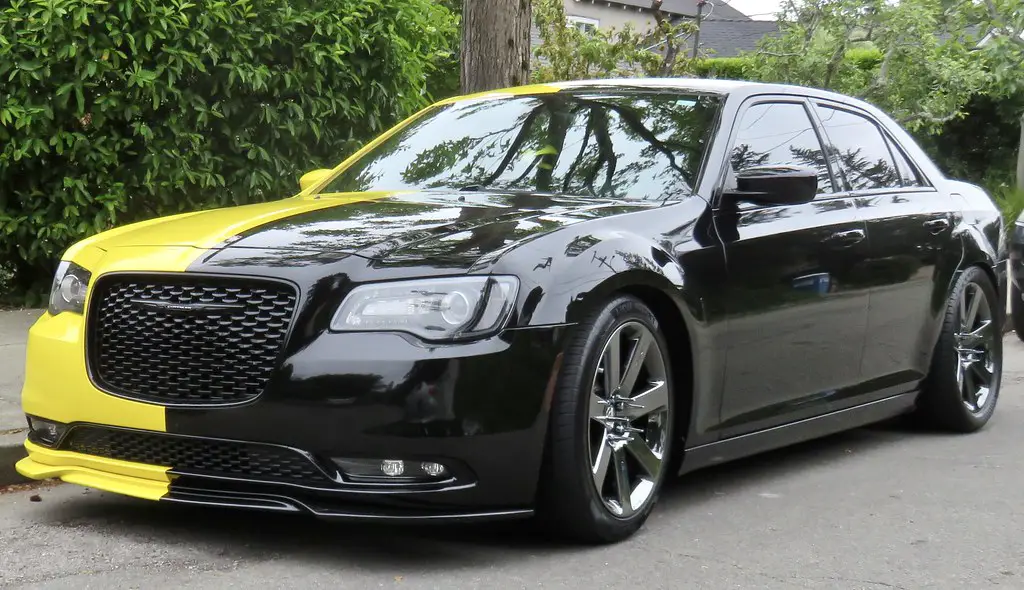If you’ve been driving a Hyundai and experienced engine issues, you might be in for some good news.
The recent Hyundai Theta Engine Settlement has sparked a wave of discussions among car owners and legal experts alike.
This settlement could mean compensation for those who’ve faced inconvenience and unexpected costs due to engine malfunctions.
But the question remains: Are you eligible for compensation?
Navigating the complexities of class settlements can be daunting, but understanding your rights and potential benefits is crucial.
The “Hyundai engine class settlement” involves specific models and circumstances, and it’s essential to know if your vehicle falls within the scope of this agreement.
This article aims to demystify the terms of the settlement and guide you through the eligibility criteria.
The main aim is to ensure that you’re well-informed and prepared to take the necessary steps toward claiming what you’re owed.
With a focus on simplicity and clarity, we’ll break down the legal jargon.
This involves providing you with a straightforward path to understanding your position in the Hyundai engine class settlement.
Whether you’re a seasoned Hyundai driver or new to the brand, this information is vital for anyone potentially impacted by the Theta engine issues.
So, let’s dive in and explore the details of this significant legal development.
What Is The Hyundai Theta Engine Settlement?
The Hyundai Theta Engine Settlement is a significant legal agreement that addresses widespread issues with the Theta II gasoline direct injection (GDI) engines found in certain Hyundai vehicles. This settlement comes after numerous reports of engine failures and fires, which led to class-action lawsuits against Hyundai.
Here’s a detailed breakdown of the settlement:
Background of the Settlement
The issues with the Theta II GDI engines included engine knocking, seizing, and even fires, prompting a series of lawsuits. These problems were attributed to manufacturing defects that could lead to premature engine failure and pose safety risks to drivers and passengers.
Key Provisions of the Settlement
- Financial Compensation: The settlement provides financial reimbursement for past repairs and associated costs for affected Hyundai vehicle owners and lessees.
- Warranty Extension: This includes an extension of the warranty for the engine’s short block assembly.
- Lifetime Warranty: Affected vehicles are eligible for a lifetime warranty, subject to certain criteria.
- Reimbursement Process: Owners of affected vehicles can submit claims for reimbursement, provided they meet the eligibility requirements and submit within the specified deadlines.
Also Read: What Is The 2024 Hyundai Palisade Towing Capacity? A Complete Guide!
Who Qualifies For The Hyundai Engine Class Settlement?
Eligibility Criteria
- Vehicle Ownership: The settlement covers individuals who purchased or leased one of the affected Hyundai vehicles in the United States.
- Active Military Duty: It also includes those who purchased while abroad on active U.S. military duty.
- Engine Types: The settlement pertains to vehicles originally equipped or replaced with specific engine types, including Theta II 2.4-liter multipoint fuel injection (MPI), 1.6-liter Gamma GDI, and 2.0-liter Nu GDI engines.
- Affected Models: Certain models of Hyundai Santa Fe, Sonata Hybrid, Tucson, Elantra, and Veloster, among others, are included in the settlement.
Claim Process
Eligible individuals must file claims for benefits from the settlement. The claim forms are available on the official settlement website, and claimants must submit their claims within the specified deadlines.
Additional Coverage
The settlement has been expanded to cover an additional 2.1 million vehicles with the newly included engine types, providing further relief to a larger group of consumers.
How Does The Hyundai Settlement Affect Your Rights?
The Hyundai settlement has a significant impact on the rights of vehicle owners and lessees who are part of the class action. Here’s a detailed explanation:
Understanding Your Rights in the Settlement:
- Opt-Out Option: You have the right to opt out of the settlement. If you do not opt-out, you are automatically included and give up your right to bring separate legal claims against Hyundai related to the engine issues covered by the settlement.
- Legal Claims: By participating in the settlement, you cannot start, continue, or be part of any other lawsuit against Hyundai about the legal issues in this case.
- Right to Sue for Unresolved Claims: Even if you take no action, you retain the right to sue Hyundai for any claims not resolved by the settlement.
Impact on Legal Recourse
- Lemon Law Claims: Accepting the settlement may forfeit your rights under state-specific lemon laws, such as California’s Lemon Law. Opting out could allow you to pursue a separate claim for a refund, replacement vehicle, or cash settlement.
- Settlement Benefits vs. Individual Claims: The settlement offers certain benefits like warranty extensions and reimbursements. However, individual claims might result in more substantial compensation depending on the circumstances.
Decision Making
- Informed Choice: It’s crucial to make an informed decision about whether to participate in the settlement or opt-out, out based on your situation and the potential benefits or limitations.
Final Approval and Payments
- Final Approval Hearing: The court will hold a final approval hearing, and only after an order granting final approval is issued and any appeals are resolved, will settlement payments go out to claimants.
What Steps Should You Take To Claim Compensation?

Step one: Verify Eligibility
Confirm that your vehicle is one of the affected models with the Theta II GDI engine.
Ensure that you meet the other eligibility criteria specified in the settlement.
Step two: Gather Documentation
Collect all relevant documents, such as repair receipts, proof of ownership, and any communication with Hyundai regarding the engine issues.
Step three: Complete the Claim Form
Fill out the claim form accurately, providing all the requested information.
Include your Vehicle Identification Number (VIN) and estimated mileage.
Step four: Provide Proof of Expenses
Attach documentation for any repairs, replacements, or other costs incurred due to the engine issues.
Step five: Submit the Claim
Submit the completed claim form and all supporting documents by the deadline.
You can submit your claim online through the official settlement website or by mail.
Step six: Wait for Confirmation
After submitting your claim, wait for confirmation from the settlement administrator.
Keep a copy of your submission for your records.
Step seven: Attend the Fairness Hearing
You have the option to attend the Fairness Hearing to voice any concerns or objections to the settlement.
Step eight: Follow Up
If necessary, follow up with the settlement administrator to check the status of your claim.
What Are The Key Dates And Deadlines For The Hyundai Settlement?
The key dates and deadlines for the Hyundai Theta Engine Settlement are crucial for claimants to be aware of. Here’s a summary of the important timelines:
- Opt-Out/Objection Deadline: The deadline to opt-out or object to the settlement was on October 30, 2020.
- Claiming Reimbursement Deadline: For most claims, the deadline to claim reimbursement was August 9, 2021.
- Court Approval: The settlement received court approval, and the judgment was entered on June 10, 2021.
- Appeal Deadline: The deadline to appeal the judgment was July 12, 2021.
- Payment Start Date: If no appeals were filed, payments for approved claims began approximately 30 days after the effective date, which would have been around August 10, 2021, for claims that had been processed.
How Will The Hyundai Settlement Impact Future Car Purchases?
The Hyundai settlement is likely to have a multifaceted impact on future car purchases for both consumers and the automotive industry.
Here’s a detailed explanation:
Consumer Confidence
- Trust Restoration: Hyundai’s response to the settlement may restore consumer trust in the brand, as it shows a willingness to address and rectify issues.
- Brand Perception: Future purchasing decisions may be influenced by how effectively Hyundai implements the settlement terms and prevents similar issues.
Industry Standards
- Safety Enhancements: The settlement could lead to stricter safety standards and more robust security features in Hyundai vehicles and potentially across the industry.
- Innovation Drive: Manufacturers might be motivated to innovate and improve engine technology and anti-theft systems to avoid similar lawsuits.
Economic Considerations
- Resale Value: Affected models’ resale values might be impacted, but Hyundai’s commitment to resolving the issues could mitigate long-term effects.
- Insurance Rates: Owners of the affected models might see changes in insurance rates due to the highlighted theft risks and subsequent settlement.
Legal Precedents
- Consumer Rights: The settlement reinforces consumer rights, setting a precedent for how automotive defects are handled legally.
- Class Action Suits: It may encourage more class action suits for automotive issues, leading to better consumer protection and accountability.
Future Purchasing Decisions
- Informed Choices: Consumers may become more diligent in researching vehicle reliability and manufacturer responsiveness to issues before purchasing.
- Warranty and Support: Buyers might prioritize brands with strong warranties and a history of supporting customers post-purchase.
Is The Hyundai Theta Engine Settlement Legit?
The Hyundai Theta Engine Settlement appears to be a legitimate resolution for a large-scale consumer class action lawsuit. It offers various forms of compensation for affected car owners, with court approval and third-party administration adding a degree of legitimacy. However, it’s important to understand that the settlement doesn’t constitute an admission of guilt by Hyundai or Kia, and the adequacy of compensation can vary depending on individual circumstances.
Arguments Against Legitimacy
Despite being legit, it also faces some arguments against its legitimacy which include the following;
No Admission of Guilt: Hyundai and Kia did not admit any wrongdoing as part of the settlement. This can be seen as a way to avoid setting a legal precedent for future cases.
Adequacy of Compensation: The value of compensation may vary depending on the specific claim and the severity of the engine issues experienced. Some owners might feel the settlement doesn’t fully cover their repair costs or loss in vehicle value.
Complexity of Claim Process: The claims process can be complex, requiring documentation and potentially involving delays.
Where Can I Get The Hyundai Engine Settlement Claim Form
If you’re looking to submit a claim for the Hyundai Theta Engine Settlement, you can find the claim form on the official settlement website. The form outlines the steps required to make a claim, including providing personal information, vehicle identification number (VIN), and details about the reimbursement you are requesting.
You’ll need to provide documentation for any costs incurred due to engine stalling, knocking, failure, or fire, as well as any inconvenience due to repair delays exceeding 60 days. Once completed, you can email the form along with the necessary documentation to the provided settlement email address or mail it to the specified PO Box.
What Is Hyundai Class Action Lawsuit?
The Hyundai Class Action Lawsuit refers to legal action taken against Hyundai Motor Company due to alleged defects in certain vehicle engines. The lawsuit claimed that specific Hyundai models were equipped with engines that could seize, fail, or even catch fire. As a result of the lawsuit, a settlement was proposed to compensate vehicle owners and lessees for their losses and to address the issues with the affected engines.
Related Post: Hyundai Excessive Oil Consumption: What Causes This Problem?
What Is The Hyundai Engine Class Settlement Payout
The Hyundai Engine Class Settlement payout refers to the compensation that eligible claimants can receive as part of the settlement agreement. The settlement provides various forms of relief, including:
- Extended Warranty: An extended warranty for the engine and its components.
- Reimbursement: Reimbursement for repairs and out-of-pocket expenses related to the engine issues.
- Goodwill Payments: Compensation for inconvenience if repairs took an unusually long time.
- Rebate: A rebate for those who purchased a new Hyundai or Kia vehicle.
- Compensation for Vehicle Loss: Compensation for vehicles that were destroyed by fire or sold or traded in because of an engine failure.
What Is The Hyundai Class Action Lawsuit Engine Fire?
The Hyundai class action lawsuit regarding engine fires is related to claims that certain Hyundai and Kia vehicles were equipped with engines that had defects potentially causing engine seizures, failures, and fires. The lawsuit has led to settlements providing compensation and other benefits to affected vehicle owners and lessees.
Here are some key points about the lawsuit and the settlements:
- Affected Engines: The lawsuit covers vehicles with Theta II, Nu GDI, and Gamma GDI engines.
- Settlement Benefits: Benefits under the settlements include an extended warranty, reimbursement for repairs and out-of-pocket expenses, goodwill payments, a rebate, and compensation for vehicles destroyed by fire or sold due to engine failure.
- Eligibility: The settlement aims to cover anyone who purchased or leased one of the affected vehicles in the United States, including those purchased while the owner was abroad on active U.S. military duty.
- Claim Submission: Owners of affected vehicles can file claims to receive benefits from the class action settlement.
Conclusion
The Hyundai Theta Engine Settlement offers a chance for compensation to owners of affected Hyundai vehicles.
While the settlement has received court approval and provides various benefits, it’s crucial to understand the eligibility criteria and deadlines.
Carefully consider your situation and weigh the potential benefits of the settlement against the option to pursue individual legal action.
Remember, the settlement doesn’t constitute an admission of guilt by Hyundai, and the adequacy of compensation can vary.
By staying informed and taking the necessary steps, you can navigate this situation and make an informed decision about whether to participate in the settlement.




